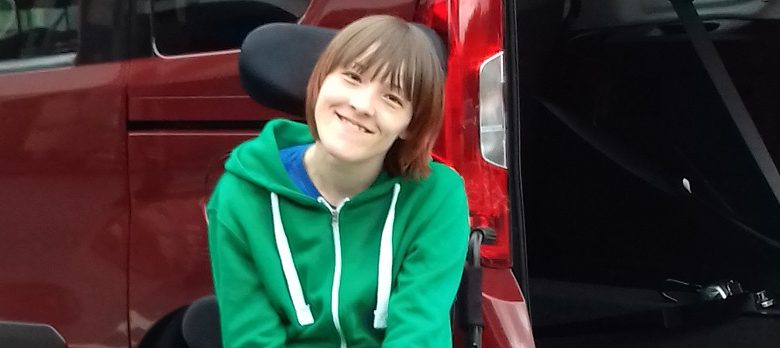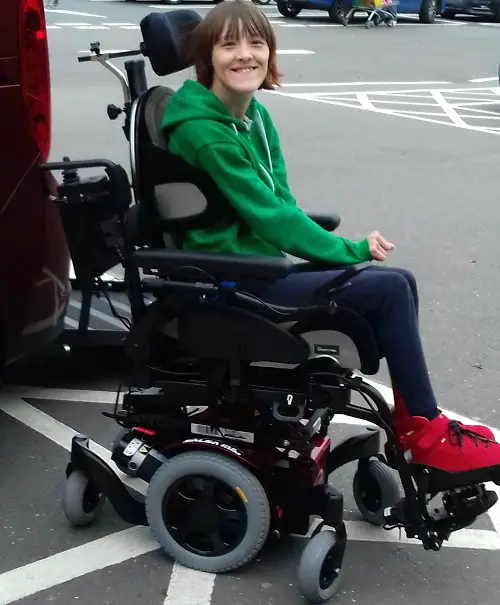
8 misconceptions about cerebral palsy busted
Whatever your disability, there will always be people who have preconceived notions of it and you. Disabled writer and blogger Ailsa, who has cerebral palsy and uses a wheelchair, has experienced a lot of prejudice in a number of forms. Here, she clears up some misconceptions about cerebral palsy.
1. Cerebral palsy does not necessarily make me intellectually impaired
A lot of people see my wheelchair and assume that I’m intellectually impaired as well as physically – I’m not. They may have come to that conclusion because my movements are sporadic and my speech is impaired.
My type of cerebral palsy (CP) is called Quadriplegic Athetoid, which means that my body moves uncontrollably – also known as involuntary movements.
Because of this, people think that I don’t know what’s going on around me or that I am not all there ‘upstairs’. But that is so far away from the truth!
As a result, people often either ignore me completely, stare or make comments. People give me unwanted attention like this all of the time. I’ve got used to it now, but it still angers me.
Once, I was sat with my family eating lunch when a little girl came over and asked some questions. She politely queried why I was in my chair. Inquisitiveness like this isn’t a problem – it means more people will become well-informed.
But, as I was answering, a woman, presumably her mother, came up behind her, grabbed her arm and exclaimed, “Come away from THAT!” She put emphasis on the word ‘that’. We were all shocked.
2. Talk to me like you would to any other person
Why do people feel the need to talk to me in a patronising tone of voice? Yes, I’m in a wheelchair and, yes, I look younger than I am. But there’s no need to talk to me in a high-pitched voice.
Don’t raise your voice or shout, either. It has no effect apart from irritating me and making you look and sound foolish!
Lots of people with CP can understand every word you say. Most of the time, you don’t need to change the way you speak. Just talk to us like you would talk to anybody else.
3. Cerebral palsy is a disability, not a disease
Believe it or not, I’ve often had people act as if I have a disease. Some people look at me with total fear, which is upsetting and degrading.
CP is not an illness – it is a non-progressive disability. I don’t want people to be frightened of me. They shouldn’t worry, they can’t catch it. I promise!
4. Not all people with cerebral palsy use wheelchairs
A lot of people are under the impression that every person who has CP uses a wheelchair. There are lots of different types of CP and lots of ways in which it can affect an individual.
Some people with CP can talk and walk, others can only talk but can’t walk and some vice-versa.
Of those who can walk, some have impairments that mean they walk with a limp or need to use aids, while others have no problem walking.
With speech, it could be that they can talk but struggle with it, or have a slight speech impairment, while others aren’t affected at all. It all depends on the extent of brain damage.


5. Not everyone with cerebral palsy needs support
Some people with CP can lead a full and independent life. Some are able to get jobs, live on their own and go out to places by themselves.
Everyone with cerebral palsy needs varying levels of help. I’ve had people telling me that I need ‘supervision’ but that’s simply not true – I don’t need someone with me 24/7. That would be horrible!
6. Cerebral palsy is permanent – it can’t be cured
CP is a permanent disability, caused by brain damage. It’s as simple as that. I’ve heard people say that they want to cure disabilities, such as CP, but this frustrates me.
Yes, life would be easier if CP didn’t exist. But I’m sure most people with CP would say it is part of them. For me, CP is part of my identity, so I’m not sure if I’d want a cure!
7. Cerebral palsy is not a ‘bad’ thing
It’s impossible to count the number of times that I’ve heard people insinuate that CP is a ‘bad’ thing. Yes, the fact that I didn’t breathe when I was born so brain damage occurred as a consequence was ‘tragic’. But, overall, CP is not that bad.
I’ve had lots of positive experiences that I wouldn’t have had if I was able-bodied. I also wouldn’t have so much determination as I wouldn’t have to try as hard to do things.
I’ve also learnt to be creative. For example, I can’t use my hands very well (my left is slightly better), so I have worked out how to use my feet instead. I taught myself to use a computer with my feet and I can use my left hand a bit.
When I was little, I dressed my dolls using my left hand and feet. I struggled to put on the small clothes that were made for them, so I asked for new-born babies’ clothes as I found it easier. I have never mastered buttons, but I have learnt to tie a tie using my left hand and my feet!
Living life with a disability isn’t about not living life to the full, but about simply finding different ways to live.
8. We’re just people
This should go without saying, but sometimes it needs to be said.
You might find our physical appearance a little different from yours. People with CP often have postural difficulties or poor muscle control. But, on the inside, we are just the same as you.
By Ailsa
You can read more of Ailsa’s articles by visiting her blog Brains on Wheels.
More on Disability Horizons…